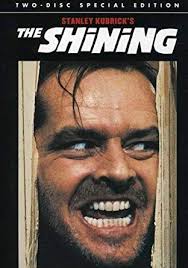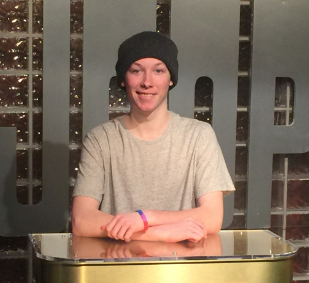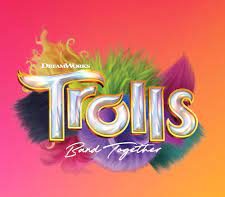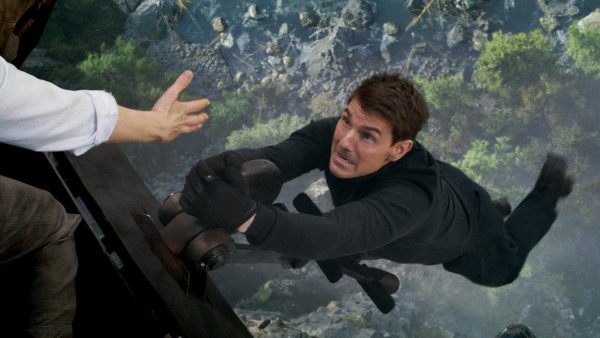Comparing Good & Bad Horror Movies

November 25, 2019
SPOILER ALERT: The following article contains spoilers of the movie Hush.
As someone who loves horror films more than any other kind of film, I find it very strange that nowadays a good portion of them aren’t really that great. Now, horror does go in cycles and waves (although there is always someone who breaks conventions within those waves during that generation of filmmakers) but it seems that we are currently stuck in a sort of cliche trap of very bad ghost or serial killer movies.
Often times, directors of movies care more about scaring the audience than the actual plot of the story, failing to understand that you can do both simultaneously. Something that mainstream directors also fail to understand is that film is a form of art. Not every movie has to be super deep, or super political, or really anything, but you have to realize that you need to respect your audience, and if you treat them like children and always go the “oh they won’t notice or care” route, many (including myself) find it insulting to say the least. On the flip side, however, is that critics who take movie watching seriously need to understand the difference between a horror cliche and a horror convention. A horror cliche, is something like a jump scare caused by a person who is revealed to not actually be a danger to the person that they have scared. A horror convention would be a jumpscare that is representative of the fear that the main character is experiencing. Whether you like it or not, it’s how horror is now, and some things you’ll just have to accept as the cultural norm.
 So let’s take a look at two very different movies, one that I thought was not very good at all (Hush), and one that is considered by many to be one of the best horror films of all time (The Shining). So what makes The Shining good to me and Hush bad to me? Well, let’s start with the premise. I’m of the opinion that anything can be well-written and interesting if you have the right people behind the project. So to do a summary of Hush, the whole movie is basically following a deaf female protagonist who lives in a very wooded and secluded area. Through the movie, we see that she is completely deaf but hasn’t always been and that she is an author. One night, while working alone in her house, a killer starts terrorizing her. So that’s Hush, and, to be honest, the premise is perfectly fine in my opinion. It’s not a super interesting topic but it certainly could have been done well.
So let’s take a look at two very different movies, one that I thought was not very good at all (Hush), and one that is considered by many to be one of the best horror films of all time (The Shining). So what makes The Shining good to me and Hush bad to me? Well, let’s start with the premise. I’m of the opinion that anything can be well-written and interesting if you have the right people behind the project. So to do a summary of Hush, the whole movie is basically following a deaf female protagonist who lives in a very wooded and secluded area. Through the movie, we see that she is completely deaf but hasn’t always been and that she is an author. One night, while working alone in her house, a killer starts terrorizing her. So that’s Hush, and, to be honest, the premise is perfectly fine in my opinion. It’s not a super interesting topic but it certainly could have been done well.
Now let’s look at The Shining’s premise. A former school teacher (now writer) named Jack is hired by a hotel in the mountains to be the undertaker while it closes for the winter season. Jack and his family head to the mountains, Jack saying that five months of peace would be perfect for his new writing project. Once they get there and the hotel has officially closed down, we get to see their family dynamic. Through the story, we see the mental states of the characters shift, as well as their view of the hotel shift. Jack starts going mad and relentlessly tries to hunt down his family for the remainder of the film.
So that’s an incredibly basic summary of both movies, but we were just talking premise. The premise for each is quite interesting in my opinion, and both had the potential to be excellent films. Because I’m more interested in tearing apart Hush than justifying The Shining, we’ll get The Shining out of the way now. The premise is interesting, the set designs are amazing, the subtle details in the shots that foreshadow future events in the film is brilliant, and the amount of interpretation that the film leaves for the audience to find is perfect. Just enough mystery and strange concepts without being too confusing. The acting is, of course, amazing. Even the child actor who plays Danny (Jack’s son) is pretty good and is really good for a child actor. THE MUSIC IS GREAT. As soon as the film opens, you are instilled with a sense of dread and horror, and as the score progresses through the scenes, they make you feel the impending doom of their situation. It really just is an incredible movie.
 Ok, so now let’s see what Hush has to offer. Number 1, the first 10-15 minutes of the movie. So a good horror movie usually opens with a dramatic short film that builds a sense of mystery. I cannot stress enough how important the opening scene in a movie is, but that’s a topic for another day. The first 10 or 15 minutes of the movie, we see what her house is like, that she’s a writer who also likes to read and cook, and that she has a cat. We see some dialogue between the main character and her best friend, and since the main character is deaf, they are attempting to do sign language to each other. The friend says she’s bad at it, but I’ve had a few people who know sign language watch the conversation and have had various reactions to it, so believe what you want, I guess. What really surprised me was how poor the acting was in this conversation. One of the two characters is not even saying words, yet it still might be some of the worst acting I’ve ever seen. Yes, it was that bad. As they are talking, the friend points inside, and the fire alarm is going off. They both rush inside, and here we are introduced to a dynamic for the first time. While zooming in on the main character’s face, the sound becomes muffled, but it’s still audible. So I don’t know if she’s fully deaf or not. I’m not really sure what that was supposed to imply, but it happens quite a few times in the movie and it’s quite annoying every time. Then the friend asks why it’s so loud, and the main character says that she needs to be able to feel the vibrations except that’s not how they work. Yes, most deaf people do use vibrations, but they don’t feel the vibrations based on how loud the fire alarm is–they generally use actual machines to vibrate a pillow or bed. Honestly, the first portion of the movie before the killer comes into play isn’t interesting or fun to watch.
Ok, so now let’s see what Hush has to offer. Number 1, the first 10-15 minutes of the movie. So a good horror movie usually opens with a dramatic short film that builds a sense of mystery. I cannot stress enough how important the opening scene in a movie is, but that’s a topic for another day. The first 10 or 15 minutes of the movie, we see what her house is like, that she’s a writer who also likes to read and cook, and that she has a cat. We see some dialogue between the main character and her best friend, and since the main character is deaf, they are attempting to do sign language to each other. The friend says she’s bad at it, but I’ve had a few people who know sign language watch the conversation and have had various reactions to it, so believe what you want, I guess. What really surprised me was how poor the acting was in this conversation. One of the two characters is not even saying words, yet it still might be some of the worst acting I’ve ever seen. Yes, it was that bad. As they are talking, the friend points inside, and the fire alarm is going off. They both rush inside, and here we are introduced to a dynamic for the first time. While zooming in on the main character’s face, the sound becomes muffled, but it’s still audible. So I don’t know if she’s fully deaf or not. I’m not really sure what that was supposed to imply, but it happens quite a few times in the movie and it’s quite annoying every time. Then the friend asks why it’s so loud, and the main character says that she needs to be able to feel the vibrations except that’s not how they work. Yes, most deaf people do use vibrations, but they don’t feel the vibrations based on how loud the fire alarm is–they generally use actual machines to vibrate a pillow or bed. Honestly, the first portion of the movie before the killer comes into play isn’t interesting or fun to watch.
Number 2, the awful exposition. I will give this movie some credit…some, for trying to not break the “show don’t tell” rule, at least for some of the opening scenes. They show some pretty cliche pictures of the main character and her friends all around the house in frames; there are some subtle details in some of the book titles littered throughout the scene that I actually enjoyed, including one that, if I’m not mistaken, said No Mercy which is a nice way of foreshadowing later events. If the whole movie was composed of subtle details like this, it probably would’ve been better. But possibly the worst example of the exposition in this movie takes place in the first conversation between the main character and her best friend. They’re talking about the main characters new book, and the friend asks how she comes up with all these great ideas. The main character replies with a bit of information that reveals that she has a “writer’s brain” but also says that she has a voice in her head that helps her with the writing. This came across as strange to me at first, and it was painfully obvious that it was going to be reincorporated later in the movie, and, of course, it was. In terms of exposition, the first 20ish minutes are the most exposition filled, and around the 20 minute mark, the antagonist of the film is introduced, which brings me to my next point.
Number 3, the villain is laughably stereotypical and is not threatening at all. The first scene where the killer is introduced, we see him looking into the kitchen window while killing the friend that the main character talked to earlier. From our first look, we see that the killer is armed with a hunting knife and a crossbow while wearing very rugged clothes with a winter beanie and white mask. To give credit where credit is due, the design of the killer’s mask, although quite simple, was actually pretty creepy and well done. But of course the credit must be removed when the killer literally takes off his mask, showing his face to the main character, and, to my memory, doesn’t put it back on for the rest of the film. When seeing the man without his mask on, he is quite nonthreatening. He is very scrawny and short. Think about a lot of the iconic horror villains in the past. Who do you think of? Freddy Krueger, Jason Voorhees, Michael Myers, the Xenomorphs from Alien, etc. Almost all of them are silent, strong, and menacing because of the air of mystery behind them. Freddy Krueger was also scrawny and weak looking, but the motives were well explained, and he had a very distinctive personality to him, and the fact that he only can attack while you’re asleep was a strong way to portray a threatening villain of the story. But what does Hush do…not much, and the killer doesn’t do much during this movie. He kills the friend and the friend’s husband who goes looking for her after she went missing for a few hours and attempts to kill the main character. The character has no background to him, and this isn’t a good thing. With all of the previously mentioned villains (with the acception of the Xenomorphs), they have just enough information given to them while still portraying the mystery and terror to them. But the killer in Hush has TOO much mystery to him. They just play him as crazy, but the craziness concept is done so stereotypically that it’s just laughable, and the fact that the actor was awful, the bad writing couldn’t even be upped a little. I guess that brings me to my next point.
Number 4, the acting is terrible. This section won’t be too long because their isn’t too much to say. In total, there are five characters who are actually played by an actor. There is one other character who is referenced and shown but never actually played by anyone. There’s the friend in the beginning, the friend’s husband, a friend that the main character briefly talks with on FaceTime, the killer, and the main character. The friend on FaceTime isn’t great, but it’s not terrible either, and since it’s just one or two scenes, it doesn’t really matter that much. The friend in the beginning is really bad; she pauses in between every word when doing the sign language even though the main character has said that she can read lips perfectly. The husband of the friend is alright, again not too big of a role to say that it ruins anything, and, honestly, he does an alright job. Unfortunately, the two main characters in the story, the protagonist and the antagonist, are the worst actors in the movie. The main character is fine, I guess, once the actual killer enters the story and she doesn’t have to have dialogue with other characters she does pretty well. But the killer character, oh boy, he’s just awful. Like I said before, he plays up the “crazy” role way too much. If you’re not going to develop the character at all, DO NOT make him stereotypical or else the audience will probably just laugh at it. It doesn’t help that the dialogue is bad too, but the actor doesn’t help either.
Finally, number 5, continuity. This is where a lot of the criticism can be called “nit-picky,” but it’s what I saw in the film, so I’m going to point it out to you. There are many continuity errors throughout the film, but the biggest one that I think sums it up pretty well is a later scene in the film. While both the main character and the killer are outside, the main character makes a run for the door to get back inside and locking it behind her. She runs, slips, and makes it inside, but her arm is now outside of the sliding glass door. The killer takes the opportunity to cripple her by shutting the door closed on her arm and continuing to break her arm. She then finally gets her arm inside and closes the door. In a way to taunt the killer with a new found courage, she writes a message to the killer in blood daring him to come inside. He then retreats to the main characters car and grabs a tire iron to break down the glass door…but…the main character never locked the glass door. I rewatched it several times, and, believe me, it’s not there. This wouldn’t be such a big deal if the door was broken down with the first or second hit, but it takes the killer SEVERAL hits to break the glass. Again, a small detail, but in my opinion small details are what make movies great.
So there you have it, an analysis of the movie Hush and why it doesn’t really work when compared to much more successful and iconic horror movies. The premise is fine, but the execution is terrible and lazily done. Again, this is just my opinion, and if you have any questions, counter-points, suggestions, or differing opinions, be sure to leave a comment below, have a great day!






Okuse Marvellous • Feb 17, 2020 at 7:46 am
I really love watching movies most especially when I am all alone or bored. I love keeping myself lively by watching movies and the kind of movies I like watching are action movies, not boring movies. We, that is all about me. Your work on this site was so wonderful, I have come across some movies that I have not been able to watch before. As I log out of your site am going to download this movie to watch later on.
Thanks for the article and for sharing it.